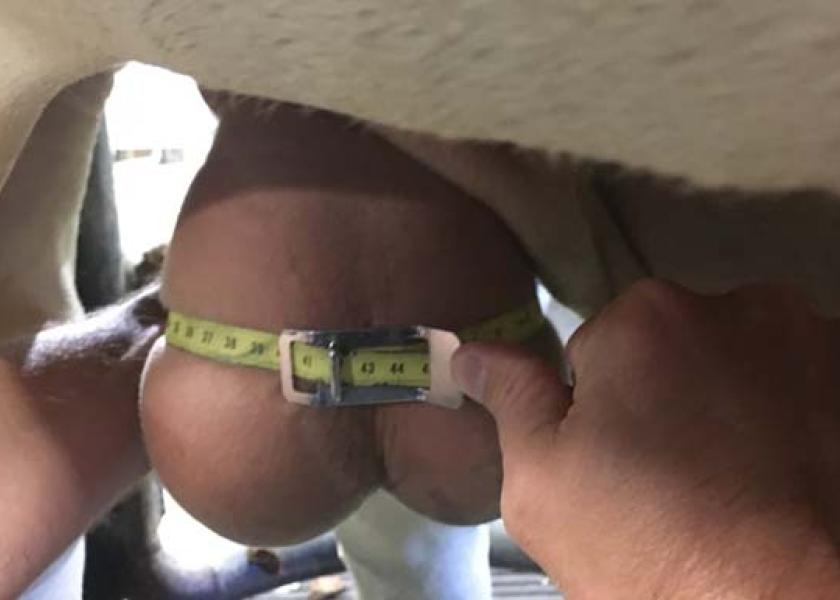Identify ‘Dud’ Bulls With A Breeding Soundness Exam. Best Practices Webinar Slated

Bulls should be thoroughly evaluated before each breeding season, so only those bulls that are able to get a high percentage of exposed cows pregnant in a short period of time are turned out into the breeding pasture this spring, advises Bob Larson, DVM, PhD, Beef Cattle Institute, Kansas State University.
“The need for a thorough breeding soundness examination (BSE) is based on the fact that many prospective breeding bulls are infertile, subfertile or unable to mount and breed successfully, and examination prior to the breeding season reduces the risk of breeding failure due to bull problems,” Larson explains.
Bulls that don’t get the job done during breeding season cost beef producers a lot of money instead of making it in the form of more calves on the ground.
Larson, along with Jennifer Koziol, DVM, MS, DACT, Purdue University College of Veterinary Medicine, are headlining a free, one-hour webinar at 7 p.m. Central on March 9 on how to implement and use BSEs. This program has been submitted, though not yet approved, for 1 hour of continuing education credit, approval pending, in jurisdictions that recognize RACE approval. Register here:
Age doesn’t matter. Larson recommends that an annual BSE – for both young and mature bulls – include a systematic examination of the bull’s feet, legs, penis and prepuce, testicles, and other reproductive organs, measurement of scrotal circumference, and microscopic examination of a semen sample.
“Mature bulls that were successful breeders the previous breeding season may experience decreased fertility that can be identified,” Larson says. “Injuries, illness, and age-related changes can affect the testicles, feet and legs, or reproductive tract of previously fertile bulls, making them unlikely to successfully breed the number of cows needed to result in high reproductive efficiency.”
At the other end of the spectrum, in young bulls, especially between 1 year and 2 years of age, Larson says they often fail a BSE because of their “age, nutritional management or individual genetic differences.”
The webinar is being hosted by Bovine Veterinarian Editor, Rhonda Brook, and Drovers Editor, Greg Henderson.







